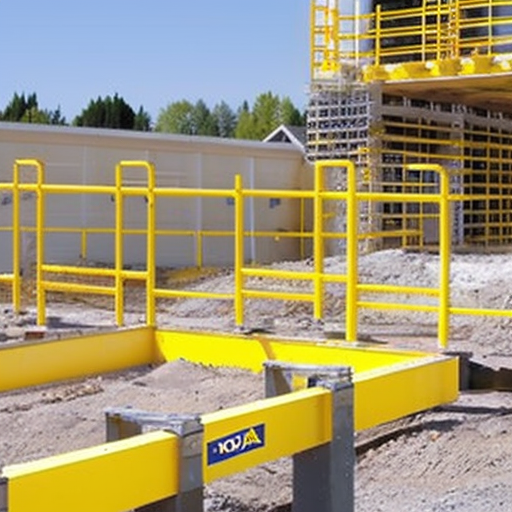When it comes to constructing buildings or any other infrastructure, prefabricated formwork systems are a great choice. In the simplest terms, prefabricated formwork systems are pre-made molds of steel, aluminum, plastic, timber or a combination of these materials that are used to create the desired shape and size of the structure. These systems offer many advantages for builders and contractors who need to quickly construct large structures with precision and accuracy.
Types of Prefabricated Formwork Systems
Aluminum Formwork Systems: Aluminum formworks are strong yet lightweight, making them suitable for constructing high-rise buildings. They can be easily modified and reused in different projects due to its strength and flexibility.
Steel Formwork Systems: Steel formworks are heavier than aluminum but offer higher stability and durability. It is ideal for structures that require higher bearing capacity such as bridges or heavy industrial structures.
Plastic Formwork Systems: Plastic formworks are light yet strong enough to support the weight of concrete during construction. They are also easy to assemble and dismantle, which makes them perfect for quick construction projects.
Timber Formwork Systems: Timber formworks offer superior insulation properties compared to other materials but require regular maintenance due to its susceptibility to weathering.
Hybrid Formwork Systems: Hybrid formworks combine the best features of both steel and plastic systems into one unified system that offers superior strength and flexibility while also being lightweight enough for fast installation.
Advantages of Prefabricated Formwork Systems
Cost-Effectiveness: Prefabricated formworks offer a cost-effective alternative to traditional methods as they can be used multiple times before needing repairs or replacements.
Speed and Efficiency in Construction Work: Assembling prefabricated forms is much faster than traditional techniques since all parts have already been cut according to measurements beforehand.
Versatility and Flexibility in Designing Structures : With prefabricated forms, you can easily adjust shapes according to your needs without having to create an entirely new structure from scratch.
Durability and Quality of the Structure Built with Prefabricated Formworks : Due to their high quality standards, prefabricated forms ensure that buildings constructed using them will last longer than those built using traditional methods
Disadvantages of Prefabricated Formwork System
High Initial Costs for Buying the System : Although prefabricated forms can be re-used multiple times which makes them cost effective in the long run, they come with an initial price tag that might not fit everyone’s budget.
Difficult to Adapt To Unusual Designs or Irregular Shapes: While most basic shapes can be created using prefabricated forms, complex designs may require custom made molds which could increase costs significantly
Prefabricated formwork systems come with a variety of advantages such as speed, efficiency, cost-effectiveness as well as durability that make them very attractive options when it comes time for building construction projects. The disadvantages such as high initial costs or difficulty adapting unusual designs should also be considered before making the decision whether or not this is the right option for you project!
